Peter Harding, Managing Director at Fairway Furniture, shares an insight into his role, how technology and sustainability is evolving the industry, and why eclectic chic remains very popular.

Let’s start with you. Can you share a bit about yourself and your background?
Growing up in and around a family business, retail has always been part of my life. I’m one of three children and we grew up in the small market town of Tavistock on the south west edge of Dartmoor. Going through my education I watched as my father took our generational family business in a fresh direction and was always fascinated by the world of business.
Following my A-Levels, I studied at Reading University for an undergraduate degree in Regional Science. This economics and geography focused degree offered a solid foundation for a life in retail, with its focus on how businesses located stores and sought out the best catchment areas through economic and statistical modelling. Having failed to get onto a graduate training scheme, I chose to join the family business in 1995. Sensibly my father insisted that I do a further qualification that would both be a backup and better help me manage my way through life in retail, so I spent the next five years qualifying as a chartered certified accountant.
What is your current job role and key responsibilities?
I’m currently the Managing Director of Fairway Furniture. I assumed this role in 2007 when my father stepped down and became chairman, after having carried out various other roles within the business in the proceeding 12 years. My key responsibilities – alongside overseeing a collegiate approach among my fellow directors and our fantastic senior management team – focus around the overall direction of the company, shaping and planning the marketing, driving technology systems implementation, usage and development, as well as working on our ‘net zero’ sustainability target. I also ensure that our shareholders, all who are family but none who are involved in the business, are kept up to date with the company’s progress, so they feel part of the company’s progress.
What do you love about your job?
The sheer breadth and diversity of the work that I do within the business means that no two days are the same. This incredible variety – allied to the seemingly never ending challenges that those running an independent business within the UK economy face – certainly make for an interesting and fulfilling job. It is always rewarding to see the work you do bear fruit, whether that be a happy and engaged workforce, satisfied customers or recognition from outside the business of the work that it does within and in support of the local community.
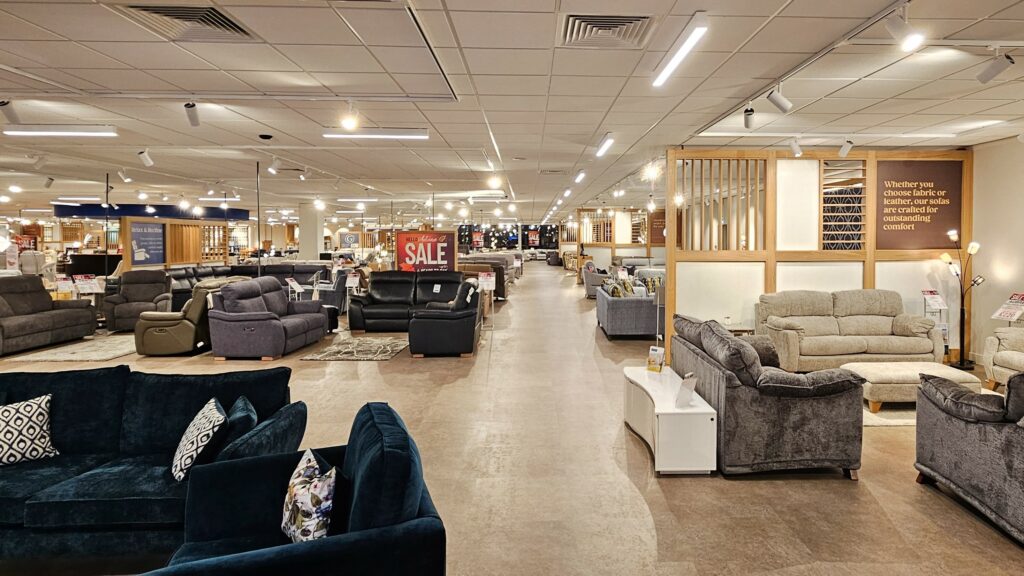
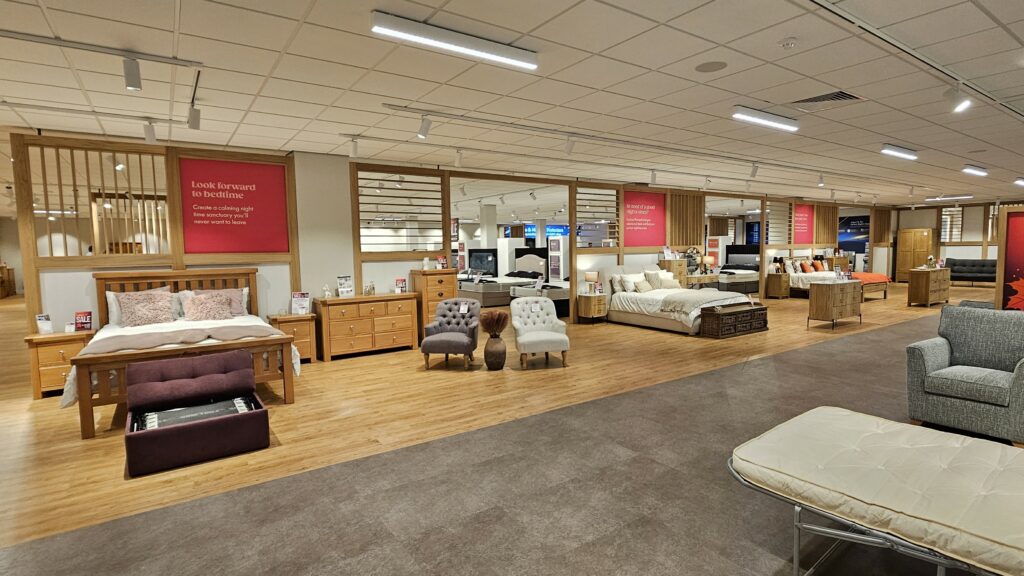
What time is your alarm clock set for and do you have a morning routine?
I am usually getting up by 6am, whether that is to get my teenage children up for school or to head into the office. I’m not a gym person, preferring a light breakfast and then to get started while my mind is fresh and alert. Typically, I’m in the office by 7:15am and getting on with my day.
Why did you choose to work in the furnishing industry?
Despite being the 6th generation to work in our family business, I never felt compelled to follow the path of my forebears. However, having always been fascinated by retail, when I completed my studies moving into the family business, either then or after working for someone else first as my father had done, was a logical next step. Had the business been in some other retail area then the same would probably have been true – I didn’t choose furniture; it chose me pretty much by default!
Who do you most admire in the industry and why?
After a childhood growing up within the independent furniture sector, followed by a career within it, I’m not short of people within the industry whose influence and encouragement has led me to admire them greatly. Watching my father take our long-established single store family furniture business from a city centre site to a 4-store multiple out-of-town leading furniture specialist was inspirational, as he could see the way that retail was changing within the UK. If we had not changed, we would very quickly not have had a business.
Peter Harrison and more recently Charlie Harrison at Furniture Village have done incredible work, taking a modest family business to a genuine UK wide player within a relatively short timeframe, while remaining an exemplar of retail standards and the ethos of a family business with their setting up of an employee benefit trust. In the independent sector, I have the pleasure of being among so many great retailers, such as Paul Glasswell (Glasswells) and James Barker (Barker & Stonehouse), who have developed their businesses fantastically, constantly renewing and developing their brands to match the changing landscape of furniture retail.
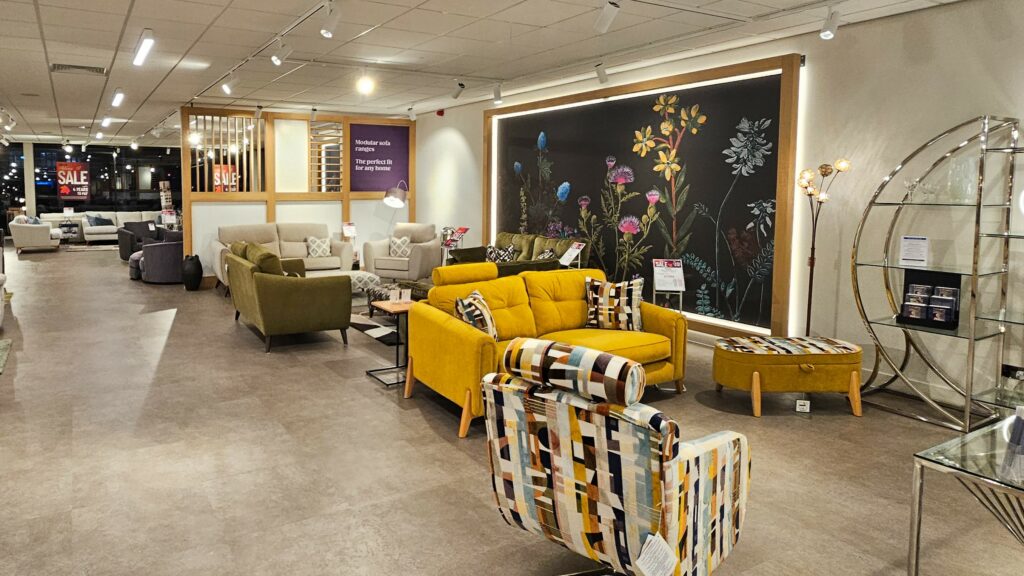
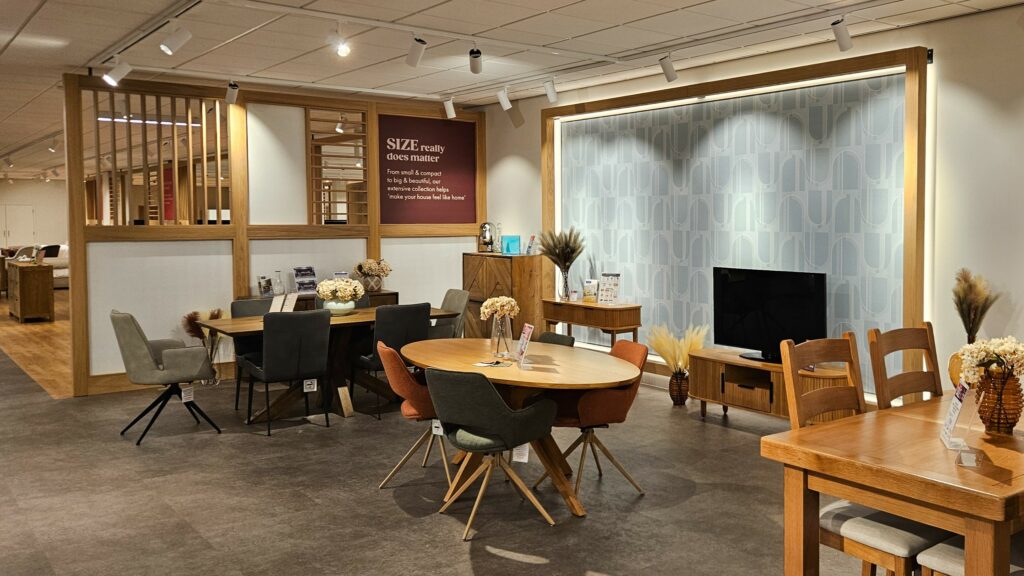
Have there been any special moments during your career?
When I completed my accountancy qualifications after 5 years of study while working full time, I felt a great sense of personal achievement. It was not an area I had any experience in before starting my studies, but the grounding it gave me across a wide range of business and finance areas has been vital to my role as I have navigated the business through just a few challenging periods since then!
During my time in the business, we have twice won the Associated Independent Stores (AIS) ‘Member of the Year’ award, and in 2012 won ‘Family Business of the Year’ as chosen by our regional press. Perhaps the most proud moment however was when the company reached the milestone of 150 years trading in 2006. We organised a gala dinner for everyone working for the company, as well as inviting former employees and representatives from key suppliers and trade associations who had been part of that journey.
What is your favourite item of furniture you own and why?
When my wife and I ‘blended’ our families and were fortunate enough to be able to build a new home together, we took the chance to start afresh and change much of our furniture. One of the items we chose was a beautiful large oak dining table with brushed chrome legs, made by Qualita. It is the centre-piece of our kitchen/diner and allows us to host plenty of people at the heart of our home. Everyone who visits comments on it and 5 years later, it still looks as good as new.
What do you think is trending within the industry at present?
Eclectic chic remains very popular, with consumers looking to curate their homes more than ever. Gone are the days when simply replacing the sofa group or the dining table would do, with plenty now looking to carefully style a whole room. There are also some hints of a move towards art-deco styling, especially in cabinet furniture which has seen a particularly challenging few years since the pandemic.
Within upholstery the desire for comfort is as strong as ever, but we are seeing plenty of interest in more lifestyle designs, which while comfortable are as much about ‘the look’. In terms of colourways, browns, deep greens and rusts are popular, linked with an increased sustainability awareness that means people feel more of a subconscious attachment to nature.
What would you change in the industry?
The furniture industry still remains behind many others in its use of technology to improve the customer journey and get products into homes faster. That is changing though and some suppliers are actively working to shorten the product cycle. Helping customers visualise products in their homes is vital to a connected retail experience, but we’re not there yet.
Alongside this, sustainability is now a major focus for customers and I believe manufacturers need to do more to address this. There is of course however that vital balance between products that last and ensuring retailers such as ourselves can survive extended replacement cycles in a market where price remains a key consumer consideration!
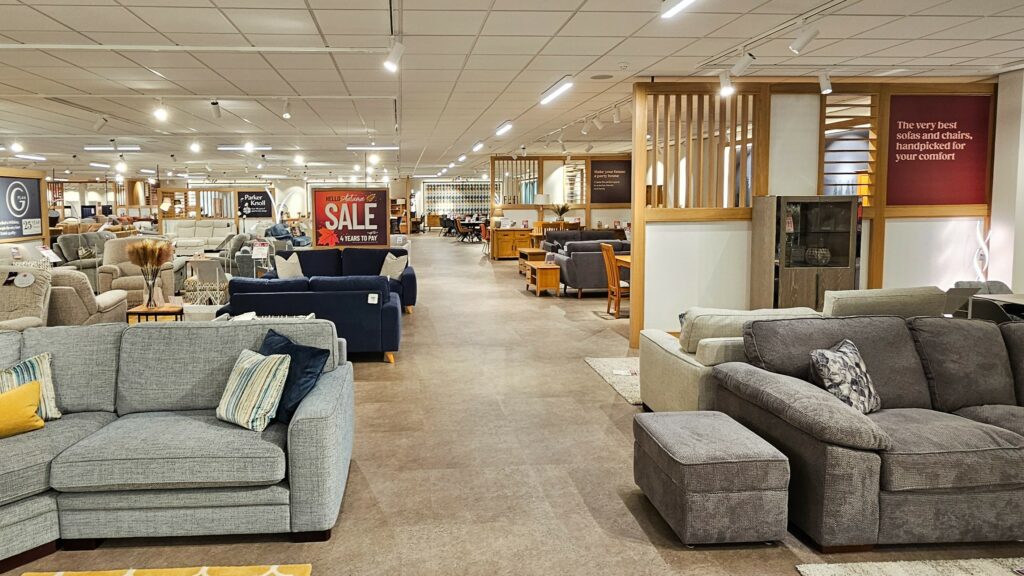
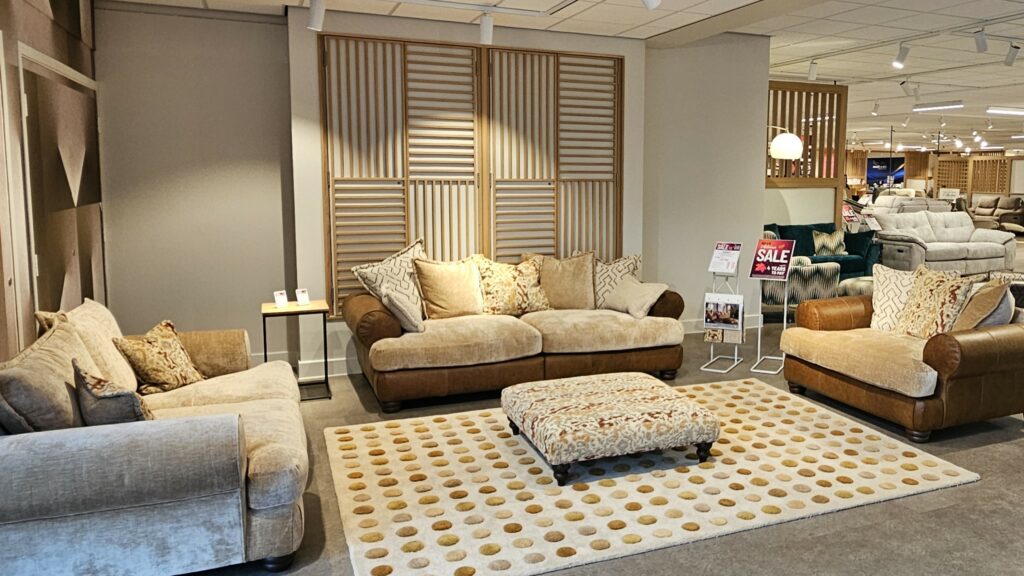
Can you share an insight into your future plans?
After a busy 2024 with a major refurbishment of our flagship store, 2025 will be one of consolidation for us, while looking ahead to 2026 and beyond as an opportunity to review growth plans. The UK economy is very fragile and with the budget’s business tax rises coming into effect from April, I am expecting a private sector recession. The impact of this will be to squeeze disposable income and further depress consumer confidence.
What do you enjoy most outside of work / free time?
Spending time with our children is important, be that watching them play sport, attending live music, watching our beloved Plymouth Argyle or walking on beautiful nearby Dartmoor. My wife and I are also trying to walk the entire South West Coast Path, however it may take some time at our current rate…
What might someone not know about you?
I am a hot air balloon pilot, having qualified back in 2007, and among plenty of balloon adventures since then, I have even taken a balloon to Nepal, within a few miles of Mount Everest.
If you had a different career, what would it be?
My wife keeps telling me that I’d have been a brilliant engineer, as I love to take things to bits to find out why they don’t work, then repair them so they do. Personally, I’ve always loved aviation and space, so being an airline pilot or an astronaut would I’m sure have been great fun.
Finally, if you were an item of furniture, what would it be and why?
A hallway table with drawers. People can put things on me and know I’ll be there when they need them. Plus, in the drawers, there is plenty of fascinating but totally useless information that I’ve accumulated over the years.
Five Fun qs:
If you could hack into any one computer, whose computer would you choose and why?
Elon Musk’s computer. As the entrepreneur responsible for so many incredible businesses, and with his finger seemingly on the pulse of anything and anyone of any importance, I’d like to know what he is thinking or what will be his next invention, business or policy to change the world.
What fact amazes you every time you think of it?
That there is massively more computing power in a modest mobile phone today than was available to take Apollo 11 to the moon over 55 years ago.
What’s the most spontaneous thing you’ve ever done?
My wife and I had been hunting for a house for our newly blended family for almost a year. One day, we separately both drove past the same house and noticed it for sale. We viewed it the next day and made an offer within an hour. It was a 3 bedroom house, so nowhere near big enough, and we had no idea what we were going to do with it. Three years later, we moved in, having designed and built our own family house, with no experience.
What is the most important object you own and why?
I’m fortunate that I have documents from across the 169 years our company has been running. Among them is a photograph of my great, great, great grandfather, John Harding, who started the business. Without him, I would not be doing what I am.
What did you think was cool when you were young but isn’t cool now?
A shell suit. I had wanted one for years and finally got one just before they became unfashionable and definitely not cool. I don’t think they’ll ever be cool again.















